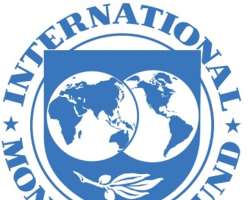Uganda and IMF Team Reach Staff-Level Agreement on a new PSI Program

KAMPALA, Uganda, May 15, 2013/African Press Organization (APO)/ -- A team from the International Monetary Fund (IMF) visited Kampala during April 29-May 14, 2013 for discussions with the Ugandan authorities in the context of the 2013 Article IV consultation, sixth and final review of the current Policy Support Instrument (PSI) arrangement, and negotiations on a new three-year arrangement under the PSI. The mission met with President Museveni, Hon. Kiwanuka, Minister of Finance, Planning and Economic Development, and Prof. Tumusiime-Mutebile, Governor of the Bank of Uganda, as well as with other senior government officials, development partners, and representatives of the business and financial communities and civil society. The mission would like to thank the authorities for the candid and constructive discussions and express its appreciation for the kind hospitality provided during its visit.
At the end of the mission, Ms. Ana Lucía Coronel, IMF senior resident representative and mission chief for Uganda, issued the following statement:
“The IMF mission and the Ugandan authorities reached staff-level agreement on a successor program supported by a new three-year arrangement under the IMF's Policy Support Instrument (PSI). The program supports maintenance of price stability and achievement of strong and sustainable growth, and contains a broad range of reforms to improve economic management. These reforms include institutional arrangements to maintain low inflation, actions to enhance the financial system's contribution to development; strengthening of tax revenue and management of public funds, and improvements in the business environment—including to prepare the economy for oil production.
“In the context of its consultation, the mission analyzed recent economic developments and outlook. The mission commended the authorities for their successful efforts in bringing inflation down to close to the 5 percent target level as a result of careful monetary management. At the same time, growth has started to pick up following a low rate of economic expansion last year, and—driven by investment and trade—is projected at 5¼ percent. Although the fiscal stance was somewhat tighter than anticipated, fast implementation of road projects provided some fiscal impetus to domestic demand. The start of operations of the Bujagali hydropower plant curtailed manufacturing costs, and compounded by a good harvest, boosted private sector activity. A pick up in private sector credit, albeit only in foreign currency, contributed to the recovery.
“With low inflation and signs of economic recovery, market confidence and expectations are improving. External performance was stronger than anticipated, with the current account deficit projected to narrow significantly this fiscal year owing to strong non-coffee exports and a temporary deceleration of imports. Aided by foreign exchange inflows, international reserves were significantly higher than anticipated and stand at a comfortable level equivalent to 4 months of imports, creating a significant buffer to the economy in the context of uncertainty in the international environment.
“All end-December 2012 quantitative assessment criteria under the current PSI were met, and some progress on the structural front was achieved, although there were delays in actions to improve transparency by publishing the beneficiaries of tax expenditures and the status of arrears. Nonetheless, the government has taken steps to improve controls in payment systems, close inactive accounts, and prepare a public financial management bill that will set the legal framework to strengthen credibility of the budget process and improve cash and debt management.
“Looking ahead, the macroeconomic outlook is favorable, with growth projected at 6-7 percent in the medium term in the context of mid single digit inflation. A moderate expansion in the underlying fiscal deficit, a neutral monetary policy stance, and the maintenance of a flexible exchange rate will support these efforts. Implementation of the reforms agreed upon within the new PSI are expected to underpin the framework. These include the strengthening of the capital position of the BoU and upgrade of its instruments to refine the inflation targeting framework; actions to increase access of the population to financial services; measures to raise revenue generation; further efforts to safeguard and improve the quality of public expenditure; and progress in improving governance.
“The 2013 Article IV consultation with Uganda, the sixth program review under the PSI arrangement, and the request for a successor arrangement are scheduled for consideration by the IMF Executive Board in end-June, 2013.
